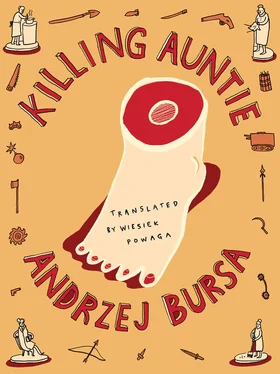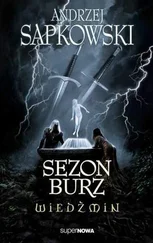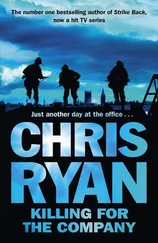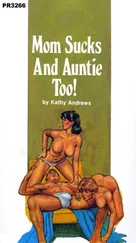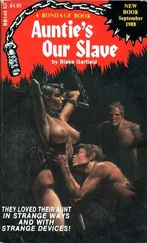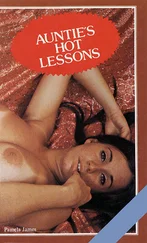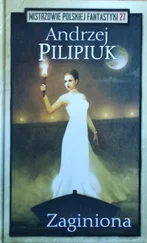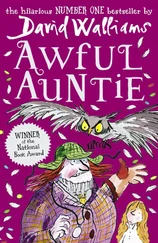“How much did you shell out yesterday?”
“I wasn’t paying.”
“Hm …” The duty officer began to leaf through the papers and engaged in a conversation with the policeman. It went on for ages.
I used every moment they turned their heads to arrange my face into a sneering grimace. Apart from the three of us there was also a young lady in a scarlet fur. She had come to the station to ask about her fiancé, a petty thief with whom she had spent the night. The woman was richly rouged, pretty and full of scorn. Her presence embarrassed me greatly. I felt deep shame in her presence, what with my dishevelment and the whole jail situation. She wasn’t looking at me at all, which hurt even more. At long last the duty officer finished his conversation, rose from his chair, put his hands in his pockets and began pacing the room. He stopped at the window and looked through the windowpanes with calm concentration. Then he came up to the locker and took out my student card, my belt and the shoes.
“Get dressed,” he said. “I hope I won’t see you here again.”
I wished that more fervently than he could ever guess.
THE RELIEF WHICH FILLED ME TO THE BRIM AFTER LEAVING the police station, at home turned into depression. Sitting on the bed I ruminated on my merciless fate, which kept throwing me higgledy-piggledy into cruel, humiliating adventures. The thought that I had just brushed against the gallows, in fact slipped through the noose, didn’t give me any satisfaction. I had made a fool of myself. Cringing and cursing myself, I recalled the details of the past night. The memory of my drunken exploits at Jacek’s pressed so heavily on my mind that even though I was already lying in a half-slumber, I extricated myself from the bedsheets and snatched my coat.
With pitiless stubbornness I played back the infamous episodes, my childishness, my stupidity and my fall. And then, suddenly, came the fear. I knew fear well. It had come to me several times in the last few days, with greater or lesser force. The new attack was dangerous. I recalled with terrifying clarity how I’d screamed at Jacek’s, “I’m a murderer!” how I drank, how I kept saying in the street, “Now I’ll cut her head off!” moments before being stopped by the police.
It was six in the morning. The hangman’s hour. Shaking with cold and terror I lay fully dressed on the bed and pulled the sheets over my head. But the calm wasn’t coming. I leaped out of bed and with all my strength started slapping my face. In spite of my faint, frozen body I threw off my jacket, sweater and shirt, and began to exercise vigorously. I tortured myself with sit-ups, push-ups and handstands, listening to my pounding heart and wheezing breath. I ran to the bathroom and put my head under the tap, then began massaging myself with karate chops and kneading my muscles until I was in pain. Then I got dressed and went back to the kitchen. I put the kettle on the stove and made myself a cup of hot tea.
Gritting my teeth and determined, I returned to the bathroom. The saw and the axe were already there. The fear had left me, as always when I focused on a concrete job. I pulled the sheet off the corpse. Rolled my sleeves up. And began to saw the other leg. I used the tried-and-tested method. First the foot, then the calf.
Shrrt-shrrt … shrrt-shrrt … shrrt-shrrt …
When I’d shortened the second leg just like the first one, I had a break. I allowed myself a cigarette. It was tasteless. I went back to work. With a few short blows of the axe I crushed both knees. I turned the top of the toilet seat into a workbench where I laid out the axe, saw and an open penknife. Taking turns with these tools I managed to disconnect the stumps from the rest of the body. Now the corpse lay comfortably in the bath. It occurred to me that I had made a terrible mistake in not bleeding the corpse while it was still warm. I would have had a much easier job. But it was too late for regrets. With the penknife I cut through the dress on the torso and peeled it off bit by bit. Without disturbing the corpse I managed to bare it completely. I rolled the rags into a ball and stuffed it behind the kitchen stove.
That was all I could do with the corpse in this position. To proceed with severing the remaining limbs the corpse had to be repositioned. I thought about it for a while, then grabbed it under the arms and lifted it. The effort was killing me. Soon I felt hammers banging on my temples. The corpse began to put up resistance again. The lolling head just would not rest on the rim of the bath. I wasn’t giving up, though. With all my muscles strained to the limit, I pulled the corpse up over the bathtub’s edge. I gave it another pull and when the resting point came to about halfway down the back, it finally kept its balance. I began to saw. I was trying to steer the saw away from the ribs so it cut only through the flesh. When I reached the spine my arms were numb and black wispy blotches floated before my eyes. But I didn’t want to stop the work halfway through. I sawed on. The body began to quiver and tilt. I mobilized all my energies to keep it steady. At last the spine gave in. From then on it was all a breeze. I pushed the cut-up remains back into the bath.
The corpse ceased to be a whole. It lost its corporeal identity. Inside the bath lay the stomach and thighs, flanked by the breastbone on the one end and knees on the other; on the tile floor — an oddly proportioned bust with two large breasts, a head and very long arms. I picked it up by the hands and threw this … shape into the bath. Then I covered the flesh with a sheet. For it was flesh. Just flesh, not a corpse. Not even a carcass. My victory over the corpse was therefore a victory only over form. The body was still in the bath and not a tiniest piece of it had been annihilated. It was, if anything, a moral victory. More like capturing of the enemy flag. The corpse had lost its flag.
The third day of my battle with the corpse was coming to an end. It should start decomposing now. In some warehouse I bought several pounds of crushed ice and laid it over the remains. Over the bathtub, I put down three small planks and placed a few of Auntie’s plants on them. In the center, Auntie’s collection of cacti, on the sides, a tiny papyrus and an araucaria. The bathroom acquired a very pleasant ambience. Something like a tranquil little chapel.
The following day I took one of the remains out from under the sheet. At first I couldn’t work out which part of the body it was. That pleased me. I wrapped it carefully in paper and tied it with a string. On the parcel I wrote an address. I had been thinking about this address for hours, rejecting the more eccentric ideas so as not to make it look too suspicious but trying to avoid banality or unwarranted carelessness. I opted for a surname ending in the rather normal “-ski,” but with a combination of preceding letters that was unusual and beautifully sonorous. I added some class to the popular name of Edward too by spelling it with a v . And gave the sender the witty and laconic name of Antoni Nul.
The clerk at the post office cast a critical eye over my parcel.
“What’s in it?” he asked.
“Perishables,” I explained.
“Write that down. Besides, it’s not tied properly. There … see?” he shook the parcel and the strings began to loosen up and slip off.
I struggled contritely with the string for a long time, then timidly asked for a bit of sealing wax, with which, in all that confusion, I burned my fingers. At last the parcel was accepted.
After my lectures I bought a larger amount of string, cardboard boxes and paper. I prepared two types of ink, a pen and a pencil. I spread out a plan of the town and a map on the table. I scoured the plan in search of streets with amusing or lyrical names and wrote them down. To my fictional addressees I gave names of characters from my favorite books. I had to give those names Polish forms, which was a lot of fun. I wrote alternately with the pen and the pencil, and changed the ink. From time to time I also changed the style of writing, now making it look like the clumsy scrawls of an illiterate, at other times drawing straight lines in pencil. I remembered that among Auntie’s few books was a manual of calligraphy. The old, little book, after years of neglect, was to be useful again. I studiously practiced the old-fashioned flourishes, ruining three sheets of paper in the process, until I achieved a perfect example of the old style. As the hours passed I grew calmer and hopeful. After filling those fifteen boxes and sending them out, I would proclaim victory.
Читать дальше
